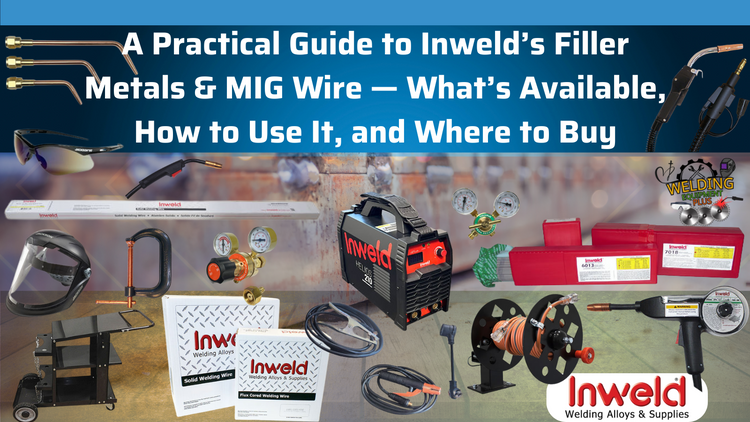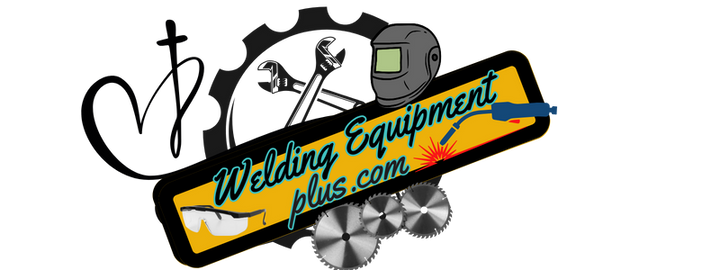If your shop runs on consistency, availability, and sensible pricing, Inweld Corporation is a name you’ll see a lot on distributor shelves. This post breaks down the types of filler metals and MIG-wire spools they offer, along with their practical uses, the length of time Inweld has been in the welding market, the other shop essentials they supply, and a critical note on the necessary setup to purchase and market their products.
Quick snapshot — who is Inweld?
Inweld is a long-standing supplier of filler metals and welding consumables to the industrial/distributor channel — the company has been supplying welding distributors for over 50 years and positions itself as a wholesale partner for welding and industrial distributors.
What kinds of filler metals and MIG wire spools do they offer?
Inweld’s product line is broad — they publish extensive product catalogs and certification lists that show dozens (and hundreds) of SKUs across various categories. Major categories you’ll find in their offering include: mild & low-alloy steels, stainless steel, aluminum (several 4xxx/5xxx alloys), nickel & nickel alloys, copper alloys, brazing alloys, titanium, hard facing, and specialty wires — plus MIG, TIG, and stick consumables. In short, almost every common filler-metal family is covered.
Practical examples you’ll commonly see on distributor shelves:
-
ER70S family (carbon steel MIG wire) — general fabrication and structural welding (continuous copper-coated MIG wire spools in standard diameters like .030/.035/.045).
-
Stainless MIG wires (e.g., ER308L, ER316L) — weld stainless joints, piping, food-grade or corrosive-service applications (many stainless MIG SKUs and certs are listed).
-
Aluminum MIG wires (e.g., 4043, 5356) — for aluminum fabrication, marine, and structural aluminum work; Inweld 5356 is available in spool form and described as a 5%-Mg alloy for general-purpose aluminum welding.
-
Nickel, copper, brazing & specialty wires — for repair, hard facing, and joining dissimilar metals (Inweld catalogs list many specialty alloys).
How to choose which MIG wire/spool for the job (short, practical rules)
-
Match the wire chemistry to base metal (ER70S→mild steel; ER308/309→stainless; 4043/5356→aluminum alloys).
-
Use ER70S-6 style wires when the joint fit-up is poor (deposits nicely, forgiving technique). (Inweld distributors stock common carbon MIG options.)
-
For aluminum, choose 4043 for general weldability/less cracking risk, 5356 for higher strength and better salt-water corrosion resistance — both are available as spools.
-
For stainless piping or tanks, use the appropriate stainless filler and follow the AWS specification matching (Inweld provides AWS-spec product certificates for many stainless items).
Availability & how long they’ve been in the market
Inweld has been operating for decades and markets itself as an established brand with more than 50 years of presence in the filler-metal/welding distributor channel. Their catalogs, certification pages, and product downloads indicate an extensive and mature line that has been continuously offered to distributors.
Reliability & other shop essentials they sell
Beyond filler metals and MIG spools, Inweld supplies a wide selection of shop essentials you’d expect a full-service filler-metal/consumable vendor to carry: tungsten electrodes, MIG/TIG consumable parts, hoses, cables, cutting & brazing kits, soapstone, electrode holders, ground clamps, hand tools, safety products, cylinder and tank offerings, spool guns, and more. Many distributors list Inweld parts for consumables and accessories, and Inweld’s own product pages and catalogs show these categories. That breadth — plus documented product certs for many filler metals — supports solid traceability and reliability for production or repair shops that source through distribution.
Practical takeaway: if you buy Inweld-branded consumables through an authorized distributor, you can expect the same kind of traceability (certs), coverage of standard welding alloys, and reasonable availability that other established filler-metal brands offer.
Important purchasing note — distributor/retailer requirement
Inweld operates through the distributor/wholesale channel. Their site and product portal include “Login / Become a Distributor” flows, and the brand is sold through welding distributors and supply houses rather than direct to the public retail storefront. In practice, that means you must be a retailer, distributor, or buy through an authorized distributor/reseller to stock and market Inweld product lines. Several distributor sites list Inweld SKUs, and Inweld itself displays 'Become a Distributor' login prompts. If you plan to market Inweld items from your business, register as a distributor with Inweld or place orders through their authorized distributor network.
How shops typically stock & market Inweld product
-
Many welding supply houses carry Inweld MIG spool sizes, ranging from small 1-2 lb spools to 33-lb and 550-lb drums, which are suitable for high-volume shops (Inweld Fusion Flow line lists spool/drum sizes).
-
Retailers bundle Inweld wire with everyday shop essentials (tungsten, gas, tips, hose kits) to serve fabricators — suitable for repeat business and warranty/traceability needs.
Final thoughts (short & actionable)
-
Range: Inweld covers carbon steel, stainless steel, aluminum, nickel, copper, brazing, hard facing, and specialty filler metals — plus MIG spool sizes for hobby to production use.
-
Use: Select wire chemistry that matches the base metal and service environment (ER70S for carbon steel, ER308/316 for stainless steel, and 4043/5356 for aluminum).
-
Buy/market: Inweld sells through distributors — you’ll need retailer/distributor status (or buy through an authorized reseller) to stock and market their products.
-
Reliability: Inweld’s long presence, product cert listings, and distributor footprint make them a practical choice for shops that prefer distributor-backed consumables with certification and traceability.
If you want, I can:
-
Draft a short reseller-focused product sheet listing popular Inweld MIG wire SKUs (ER70S, ER308L, ER316L, 4043, 5356) + recommended applications and spool sizes, OR
-
Put together a one-page comparison table (ER70S vs ER308L vs 4043 vs 5356) that you can print and hand to customers.
Which would help you most for marketing to your customers?


